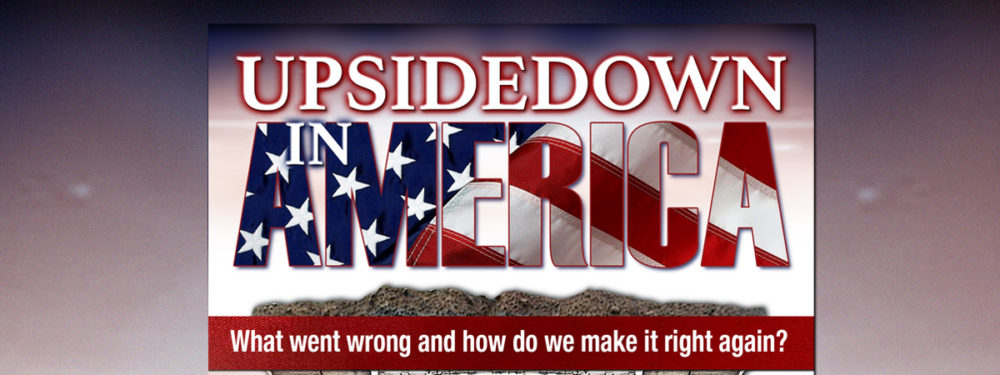The feel-good religion of the Light Side apparently consists in little more than muddleheaded platitudes about hope and change.
Usually, Hollywood writers leave their intellectual influences implicit in the script: “follow your dreams,” “be true to yourself,” “question authority,” “don’t conform,” and a million other clichés. You know the ideology: it’s present in just about every Hollywood movie, especially those made after 1970.
Shortly after Donald Trump’s win, however, two “Rogue One” writers made the relationship between their political ideology and their product explicit. One tweeted, “Please note that the Empire is a white supremacist (human) organization.” Another responded: “Opposed by a multicultural group led by brave women.” Since then, some opponents of Trump have taken to calling themselves “the Resistance.”
Star Wars Has Always Been A Romantic Narrative
In one sense, there is very little new going on here. The Empire was always very clearly meant to evoke the spectre of Nazi Germany, right down to the Hugo-Boss-In-Space uniforms. And, as these sorts of Romantic/Progressive narratives inevitably do, the central conflict of the series conflates cultural conformity with “structural oppression” and mass extermination. Obedience to authority equals mindless conformity equals Nazism; in the progressive mind, it is always 1941, and their opponents are always soulless fascists.
Thus, there is nothing surprising about the way these “Rogue One” writers chose to frame the politics of the film, particularly given the decision to cast all the white men as evil “human supremacists” (except, arguably, for one defiant collaborator), and cast zero non-Hispanic white men among the main action heroes (except, arguably, for Alan Tudyk in a motion capture suit).
These decisions have been discussed elsewhere, perhaps most notoriously by the alt-Right in their campaign to “#DumpStarWars”. But rather than dwell on the tired question of “diversity” in media representations, I would like to turn toward something that I find far more interesting: the religion of the Force, as represented in the film.
Past ‘Star Wars’ Films Pit The Force Against Science
On the one hand, it is established that the Force has two sides, Light and Dark, and that each side is associated with a particular political program. The “good guys” of the Rebellion are aligned with the Light Side, while the “bad guys” in the Empire are aligned with the Dark. Even so, the religion of the Force is dying out, with skepticism about its efficacy running rampant on both sides of the conflict.
In the original “Star Wars,” for example, Vader gets into a heated debate with an Imperial officer who mocks Vader’s “sad devotion to that ancient religion.” This structurally mirrors the later debate between Obi-Wan and Han Solo, who advises Luke that “hokey religions and ancient weapons are no match for a good blaster at your side.” To paraphrase: we don’t need the Force, we have “science.”
These notes are played up early on in “Rogue One,” with heavy weapons expert Baze’s dismissive attitude toward the blind monk Chirrut’s devotion. Nevertheless, like the previous films, “Rogue One” does show the connection between the Empire and the Dark Side, as demonstrated for example in the ritual garb of Vader’s attendants, or Vader’s own spectacular and horrifying use of Force powers.
In ‘Rogue One,’ The Rebellion Is Fighting For Religion
On the other hand, “Rogue One” portrays the relationship between the rebels and the Force in a manner qualitatively different than that between the Empire and the Force. Put simply, in “Rogue One,” unlike the previous films, the Rebellion is explicitly fighting for religion, while the Empire is coldly dismissive of it.
In the original films, for example, despite the clear association between the two sides of the conflict and the two sides of the Force, the religious dimension of the Galactic Civil War is practically an afterthought for everyone but the Skywalker family. The only point where religion comes up in a general mass-social context is near the end of “Return of the Jedi,” when Admiral Ackbar blesses the entire rebel fleet: “May the Force be with you.”
In “Rogue One,” by contrast, this benediction is repeated several times by multiple characters. It is very clear that the Rebellion is being portrayed as motivated in large part by adherence and devotion to the religion of the Force.
The Rebellion Gives Us Lots Of Feel-Good Religion
This point comes into even sharper relief if we consider how the filmmakers depict the Empire’s casual destruction of Jedha. The mocking disdain that the Imperial officers have for the temple in “their holy city” underscores how the audience is supposed to interpret the conflict—specifically, along the lines demarcated by Romantic ideology. The Rebellion represents the organic, life-affirming spontaneity of “freedom” and “hope,” the feel-good religion of being “true to yourself” and never submitting to external authority.
The Empire, meanwhile, represents mechanical obedience, the anti-religion of soul-crushing conformity. It is an authoritarian movement violently achieving cultural domination by uprooting and destroying even vestigial remnants of orthodox religious practice.
What ‘Rogue One’ Is Actually Telling Us About Authoritarianism
Of course, it is noteworthy that the feel-good religion of the Light Side apparently consists in little more than muddleheaded platitudes about hope and change, married to a strictly nominal ethic of nonviolence that has an unfortunate tendency to leave countless corpses in its wake. But this structural incoherence (like the incoherence of attempting to portray the Empire as simultaneously hostile to religion and in line with the Dark Side) is ultimately less interesting than the way in which these progressive, anti-Trump screenwriters have projected their own Jungian shadows out into the void of space.
Because there is indeed a terrifying and extremely powerful force currently operative that, by any reasonable or objective definition, constitutes an authoritarian movement violently achieving cultural domination by uprooting and destroying even vestigial remnants of orthodox religious practice.
But it ain’t Trump.
This article originally appeared on The Federalist website on January 29, 2017 here.
Copyright © 2017 The Federalist, a wholly independent division of FDRLST Media, All Rights Reserved.

